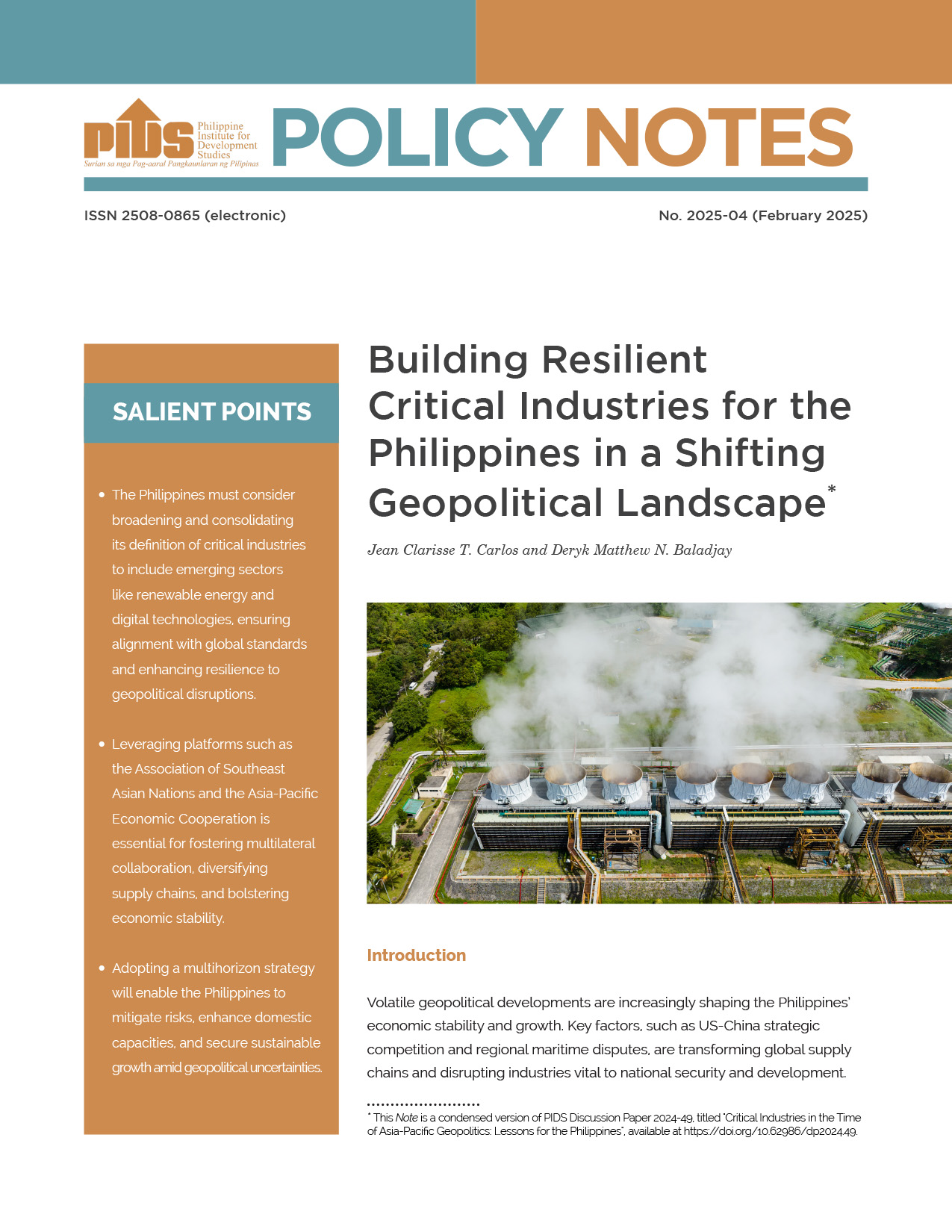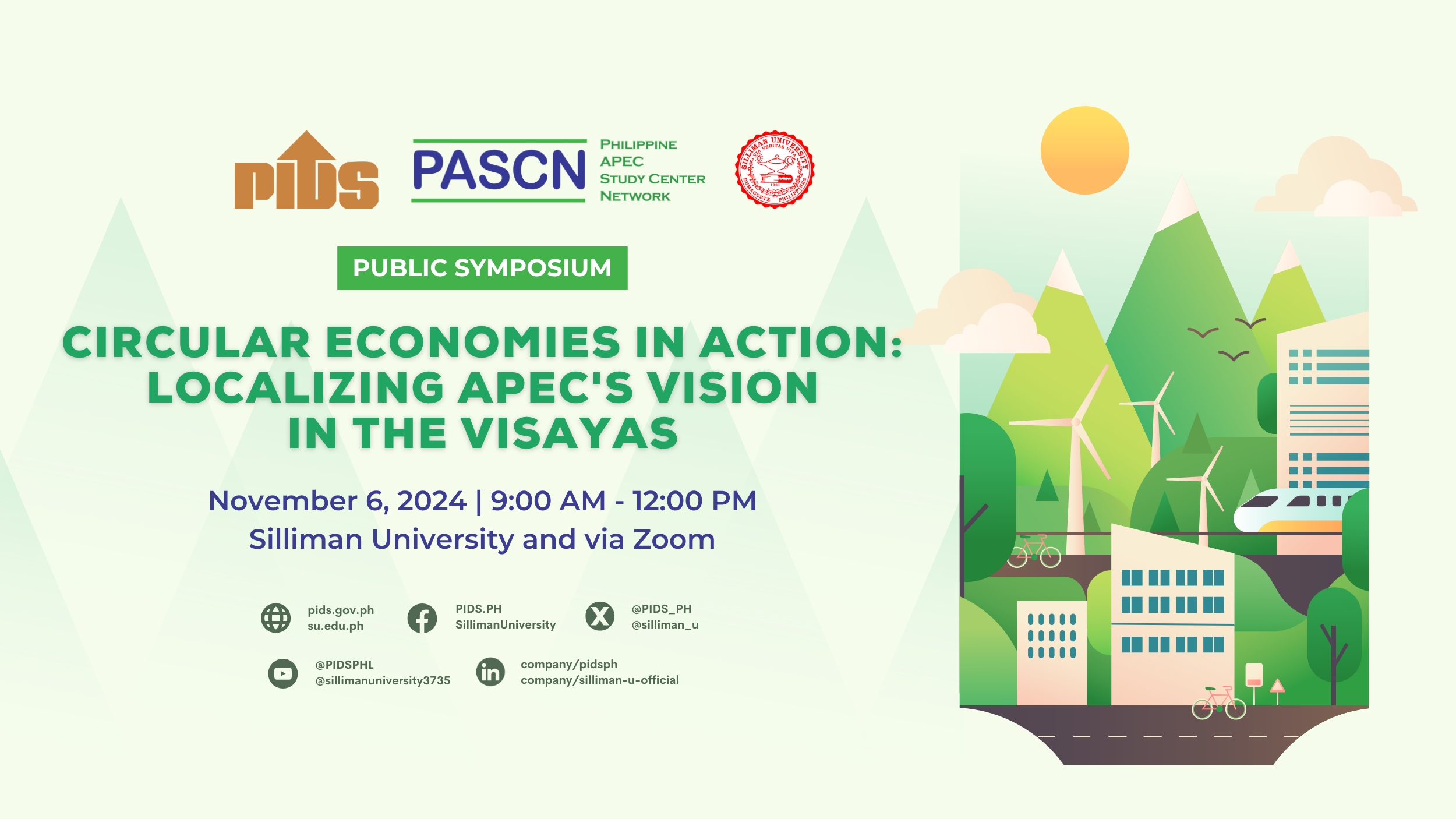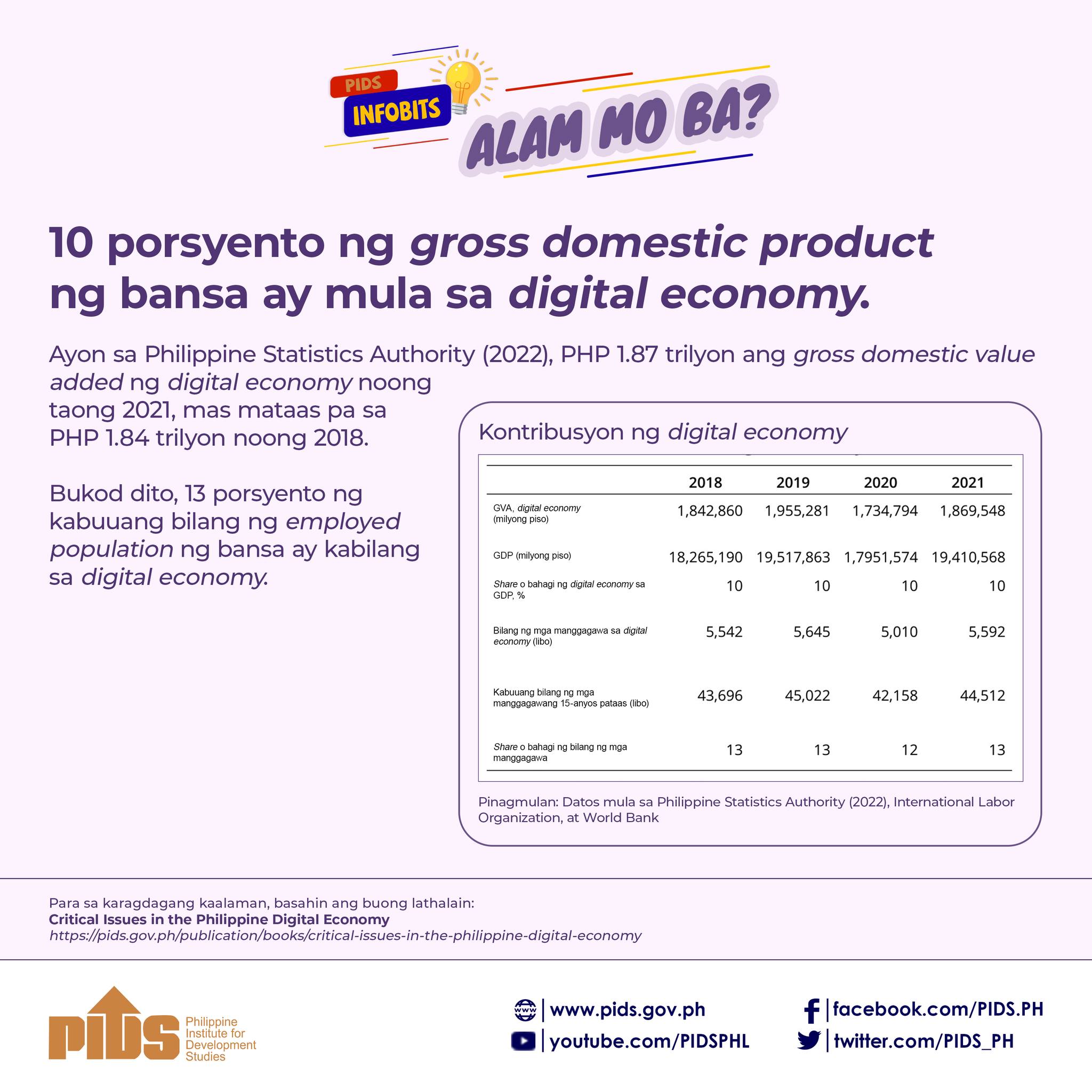State think tank Philippine Institute for Development Studies said Monday the country should push for the discussion of global value chains during the Asia-Pacific Economic 2015 summit which Manila will host.
Global value chains are the sequence of activities around the world involved in the conception, production, distribution, usage and other activities that add value to a product.
PIDS senior research fellow Ramonette Serafica said in a study the Philippines, as the Apec 2015 host, should build on the work already started and expand opportunities by undertaking further analytical work that focuses on the case studies of regional services value chains.
"There aren’t sufficient studies on the important role of services in global value chains and the potential for the region and the individual economies to benefit from the growth of services value chains, especially where small and medium enterprises, which are most engaged in global value chains, can better access them,” she said.
"Given the Philippines’ comparative advantage in ‘other business services’ and in ‘computer and information services’, advancing regional cooperation in services value chains can further strengthen our export position in these activities,” Serafica said.
Serafica said the trend for Apec nations was to target global value chains and segments that were congruent with the advantages and development objectives of their individual economies.
"Depending on the global value chains requirements, Apec member countries can design business facilitation measures and investment policies to encourage growth,” she said.
Serafica said with the right measures, individual economies could help capitalize on these advantages and create new specializations. While the overall outlook remaining optimistic, she said there were also risks in the developing the global value chain.
"The benefits are limited by the share of value added in the chain that a country is able to capture,” she said.
Serafica said expanding a country’s share of value added in the services global value chain depended largely on the quality of infrastructure and efficient services markets. Apec nations are collaborating to improve the transport sector, business services, telecommunications and distribution channels.//












